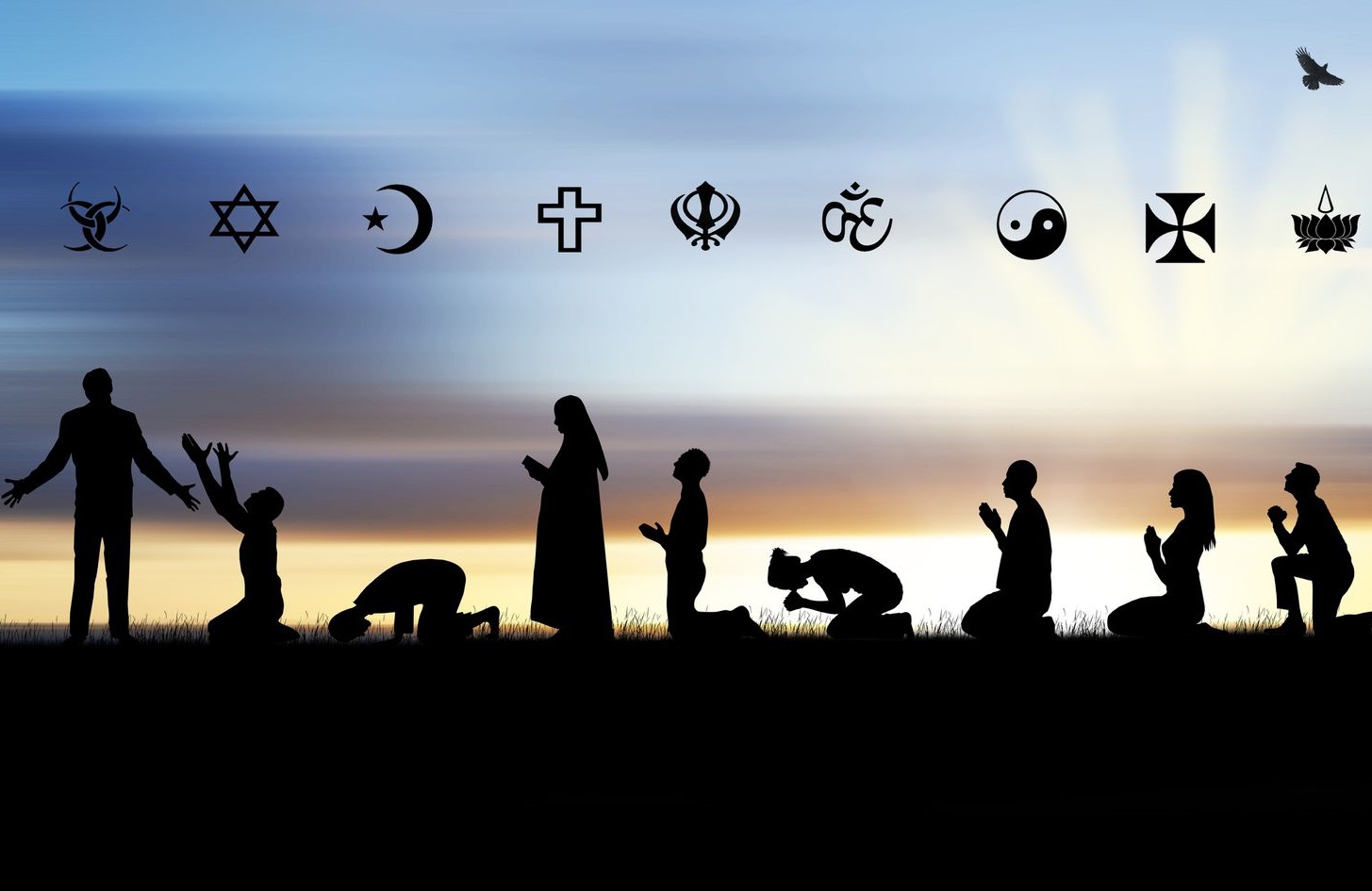
Ever wondered how major religions began? From ancient rituals to divine revelations, the origins of the world's faiths are filled with fascinating stories. Religions like Christianity, Islam, Hinduism, Buddhism, and Judaism have shaped cultures, influenced laws, and guided billions of lives. Each one started in a unique way, often rooted in the teachings of a charismatic leader or a profound spiritual experience. Understanding these beginnings not only gives insight into the religions themselves but also into the history of human civilization. Let's dive into 25 intriguing facts about how these major religions came to be.
Key Takeaways:
- Christianity, Islam, Hinduism, Buddhism, and Judaism have fascinating origins dating back thousands of years, with influential figures and foundational texts shaping their beliefs and practices.
- From Jesus of Nazareth's teachings in 1st century Judea to Prophet Muhammad's revelations in 7th century Arabia, the origins of major religions are rich with historical events and influential figures.
The Origins of Christianity
Christianity, one of the world's largest religions, has a rich history that dates back over two millennia. Here are some fascinating facts about its beginnings:
- Christianity began in the 1st century AD in the Roman province of Judea, with the teachings of Jesus of Nazareth.
- Jesus' disciples spread his teachings after his crucifixion, leading to the formation of early Christian communities.
- The New Testament of the Bible, written by various authors, documents the life and teachings of Jesus.
- Constantine the Great played a crucial role in Christianity's spread by legalizing it in the Roman Empire in 313 AD.
- The Council of Nicaea in 325 AD was the first ecumenical council, establishing foundational Christian doctrines.
The Roots of Islam
Islam, founded in the 7th century, has grown to be one of the most influential religions globally. Let's explore its origins:
- Islam originated in Mecca and Medina in present-day Saudi Arabia.
- Prophet Muhammad is considered the last prophet in Islam, receiving revelations from Allah.
- The Quran, Islam's holy book, is believed to be the word of God as revealed to Muhammad.
- The Hijra in 622 AD, Muhammad's migration from Mecca to Medina, marks the beginning of the Islamic calendar.
- The Five Pillars of Islam are fundamental practices that all Muslims follow, including prayer, fasting, and pilgrimage.
The Beginnings of Hinduism
Hinduism, one of the oldest religions, has no single founder and is deeply rooted in the Indian subcontinent. Here are some key points about its origins:
- Hinduism's origins date back over 4,000 years to the Indus Valley Civilization.
- The Vedas, ancient sacred texts, form the foundation of Hindu beliefs and practices.
- The Upanishads, philosophical texts, explore the nature of reality and the self.
- Hinduism encompasses a variety of beliefs and practices, including karma, dharma, and reincarnation.
- The caste system, though controversial, has historical roots in Hindu society.
The Dawn of Buddhism
Buddhism, founded in the 5th century BCE, offers a path to enlightenment through ethical living, meditation, and wisdom. Here are some insights into its beginnings:
- Buddhism was founded by Siddhartha Gautama, known as the Buddha, in ancient India.
- The Four Noble Truths outline the nature of suffering and the path to its cessation.
- The Eightfold Path provides guidelines for ethical conduct, mental discipline, and wisdom.
- Buddhist teachings spread across Asia through missionaries and trade routes.
- The Tripitaka, or Pali Canon, is the earliest collection of Buddhist scriptures.
The Genesis of Judaism
Judaism, one of the oldest monotheistic religions, has a history that spans thousands of years. Let's delve into its origins:
- Judaism traces its roots to Abraham, considered the patriarch of the Jewish people.
- The Torah, the central reference of the Jewish religion, contains the first five books of the Hebrew Bible.
- Moses is a key figure in Judaism, leading the Israelites out of Egypt and receiving the Ten Commandments.
- The Babylonian Exile in 586 BCE was a pivotal event, leading to the development of Jewish religious and cultural identity.
- The Talmud, a central text in Rabbinic Judaism, contains interpretations and discussions of the Torah.
The Final Word on Religious Origins
Understanding the origins of major religions offers a glimpse into humanity's quest for meaning. From Hinduism's ancient roots to Islam's rapid expansion, each religion has a unique story. These origins shape beliefs, practices, and cultures worldwide. Knowing these facts helps us appreciate the diversity and commonalities among faiths. It also fosters respect and tolerance. Whether you're a history buff or just curious, these insights enrich your knowledge. So next time you encounter a religious tradition, you'll have a deeper understanding of its background. This awareness can lead to more meaningful conversations and connections. Keep exploring, keep learning, and you'll find that the world of religion is as fascinating as it is diverse.
Frequently Asked Questions
Was this page helpful?
Our commitment to delivering trustworthy and engaging content is at the heart of what we do. Each fact on our site is contributed by real users like you, bringing a wealth of diverse insights and information. To ensure the highest standards of accuracy and reliability, our dedicated editors meticulously review each submission. This process guarantees that the facts we share are not only fascinating but also credible. Trust in our commitment to quality and authenticity as you explore and learn with us.
